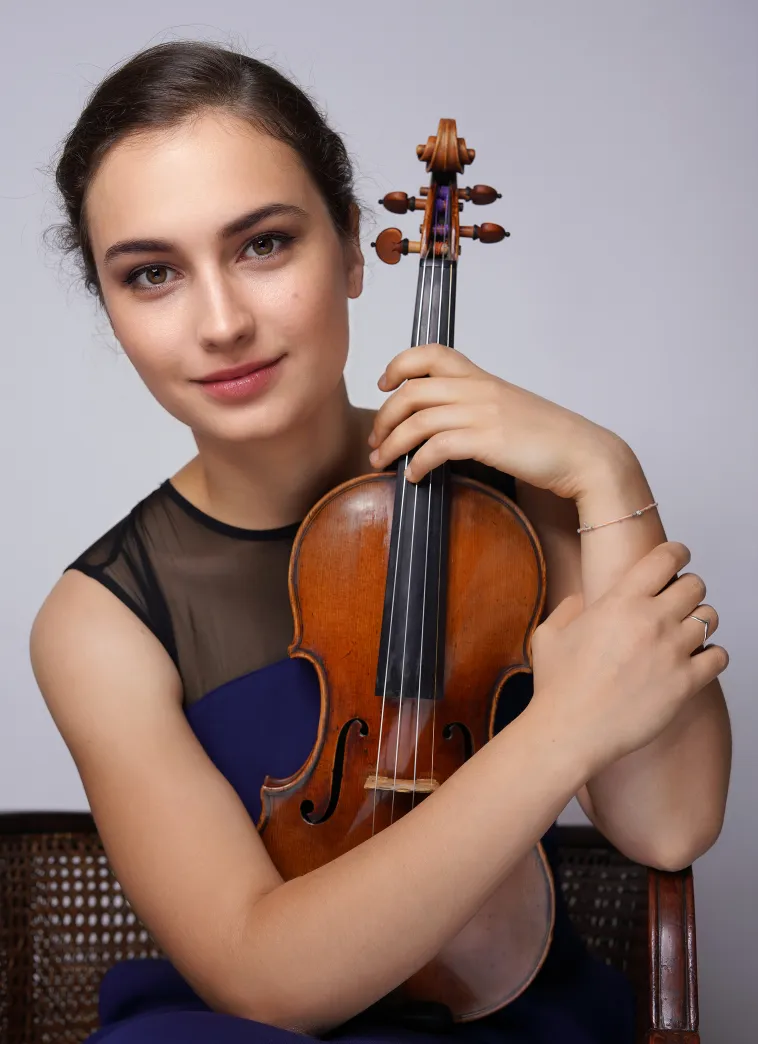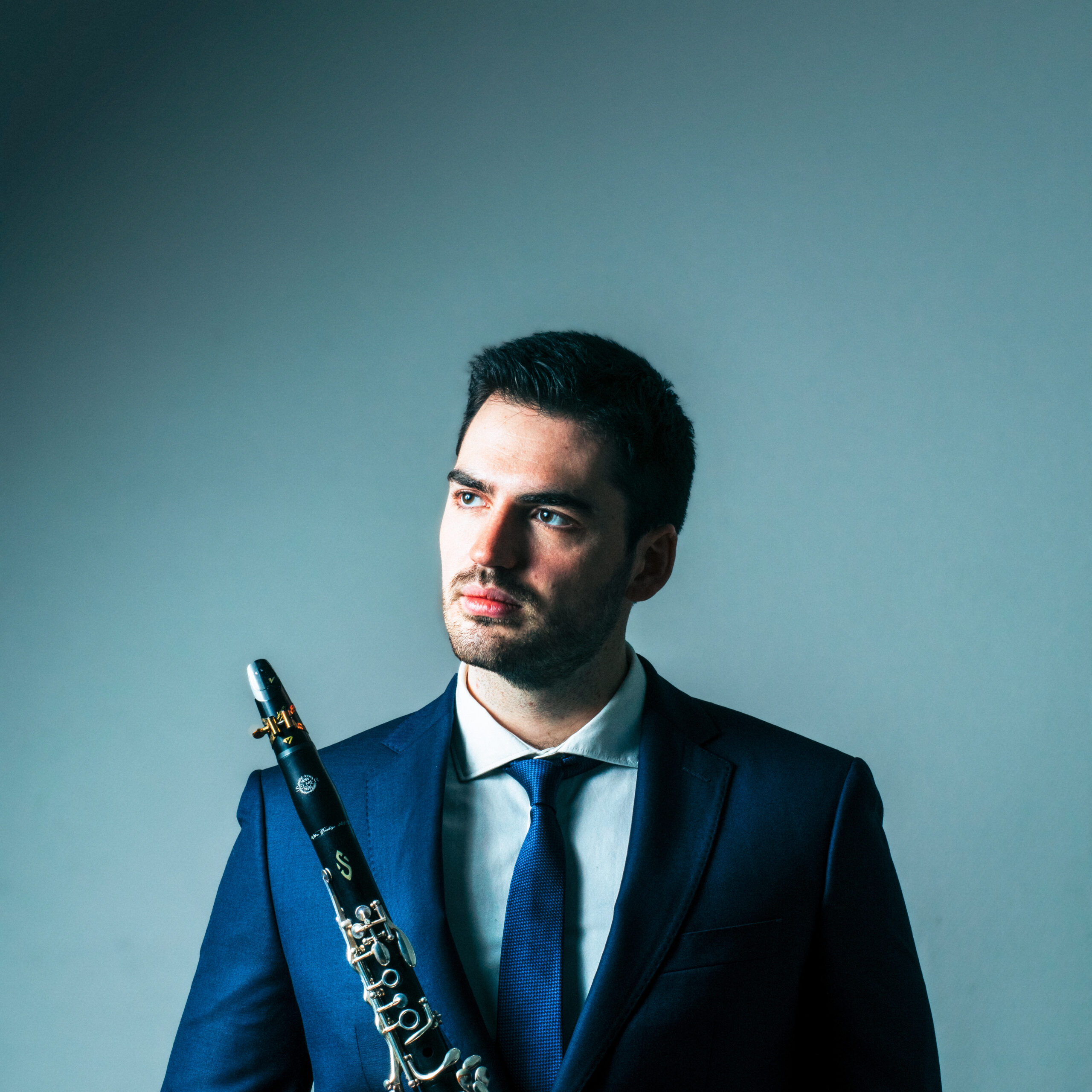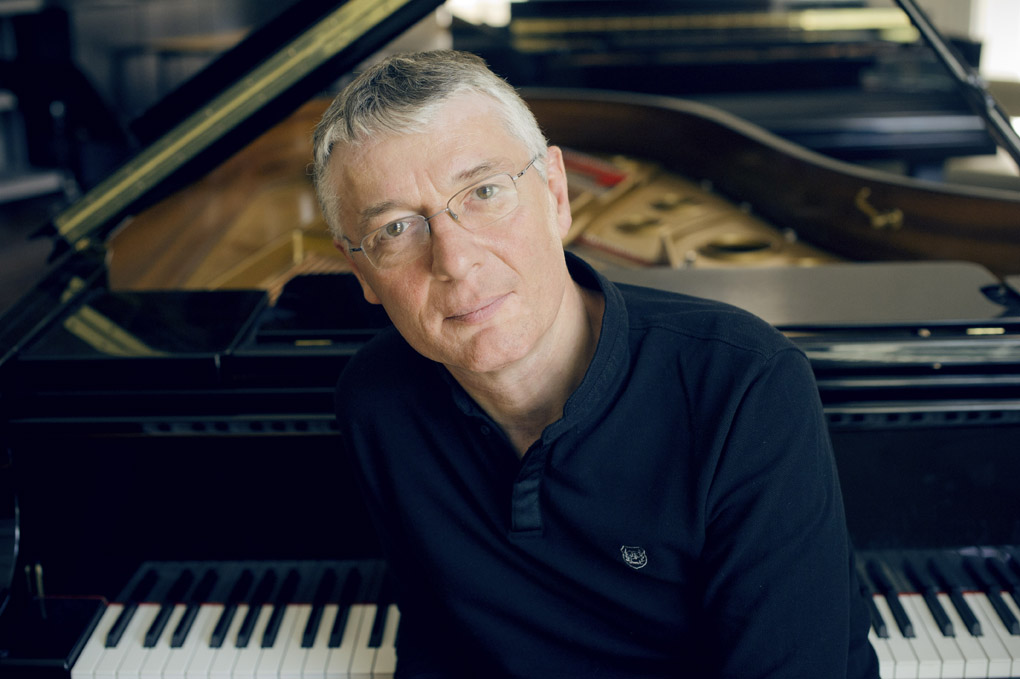Performers
- Eva Zavaro violin
- Raphaël Sévère clarinet
- Emmanuel Strosser piano
Programme
Igor Stravinsky Three Pieces For Solo Clarinet [5’]
I. Sempre piano e molto tranquillo ♩ = 52
II. ♪ = 168
III. ♪ = 160
Igor Stravinsky The Soldiers’s Tale Suite for violin, clarinet and piano [15’]
I. The Soldiers’s March
II. The Soldiers’s Violin
III. The Little Concert
IV. Tango – Waltz – Ragtime
V. The Devil’s Dance
Béla Bartók Six Romanian Folk Dances for violin and piano, BB.68 [7’]
I. Jocul cu bâtă (Stick Dance): Allegro moderato
II. Brâul (Sash Dance): Allegro
III. Pe loc (In One Spot): Andante
IV. Buciumeana (Dance from Bucium): Molto moderato
V. Poarga românească (Romanian Polka): Allegro
VI. Mărunțel (Fast Dance): Allegro
Béla Bartók Contrasts for violin, clarinet and piano, B.116 [17’]
I. Verbunkos (Dance of Recruits): Moderato ben ritmato
II. Pihenö (Rest): Lento
III. Sebes (Fast Dance): Allegro vivace
Concert description
The 20th century brought a crisis, but also the beginning of powerful changes in classical music – thanks in part to the works of Béla Bartók and Igor Stravinsky. Their greatest achievement became the revolutionization of the realm of time and rhythm – that is, the essence of dance – although each accomplished this in a slightly different way.
Bartók drew fully on Hungarian folklore, for in it he saw sources of innovative ideas. Classical music is usually governed by simple regular divisions – as in a march, when the accent always falls on the first of four pulses, and in a waltz on the first of three. Folk melodies, on the other hand, flow freely, sung from the heart, without divisions, measures or bars. It was this freedom that Bartók transplanted into his own work – in his works, it is the meter that follows the dance musical thought, not the other way around.
Shifting accents and disrupting regularity in derived genres is, in turn, Stravinsky’s domain. The composer brilliantly maneuvered between styles, modifying and appropriating a bit of each. Ragtime, tango, jazzy improvisation or lyrical song were never the same again later.
– Karolina Dąbek (pisanezesluchu.pl)






